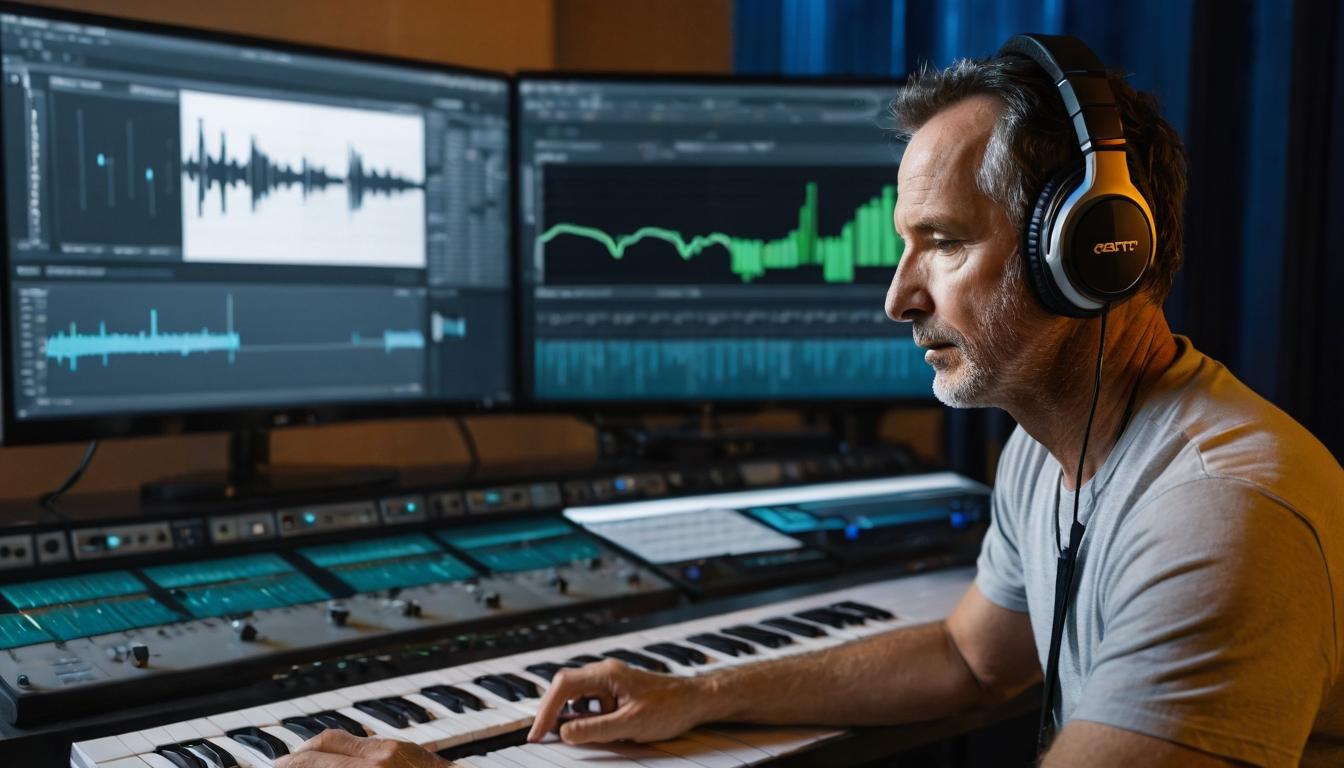The projector flickers to life, the studio logos fade, and then it happens—that first musical note hits you right in the chest. You're not just watching a movie anymore; you're feeling it. While audiences leave theaters debating performances and plot twists, few recognize that the most powerful emotional manipulation happening on screen comes not from the actors or directors, but from composers working in soundproof rooms, translating human experience into musical language.
In Hollywood's shadow economy of recognition, film composers have long occupied a curious space—essential but invisible, celebrated by peers but overlooked by the public. Yet something is shifting. The past decade has witnessed what industry insiders call "the composer revolution," where musicians like Hildur Guðnadóttir (Joker), Ludwig Göransson (Black Panther), and Nicholas Britell (Succession) have become unlikely celebrities, their names appearing in marketing materials and their scores generating standalone chart success.
This transformation isn't just about fame—it's about fundamental changes in how films are made. Directors now routinely bring composers into projects during pre-production, sometimes even before casting is complete. The traditional model of "compose to picture" is giving way to collaborative sound worlds built from the ground up. When Denis Villeneuve approached Hans Zimmer about Dune, their first conversations weren't about specific scenes but about the sonic texture of sand, the rhythm of desert winds, the musical representation of ecological disaster.
Technology has democratized the composing process in ways that would have been unimaginable twenty years ago. Where once composers needed access to expensive studio space and live orchestras, today's breakthroughs often happen in home studios using sample libraries so sophisticated they can mimic the acoustic properties of specific concert halls. This accessibility has led to an explosion of diverse voices in film scoring—composers from classical, electronic, pop, and world music backgrounds are bringing fresh perspectives to cinematic storytelling.
Yet the very tools that have opened the field present new challenges. The line between "inspired by" and "plagiarized" grows increasingly blurry when thousands of composers draw from the same digital sound libraries. Legal battles over musical copyright have become more frequent and complex, with courts struggling to determine where homage ends and theft begins in an art form built on emotional archetypes.
Meanwhile, streaming platforms have created both opportunity and oversaturation. While services like Netflix and Amazon provide steady work for composers, the sheer volume of content means scores must fight harder for audience attention. The result has been what some critics call "sonic branding"—distinctive musical identities for franchises that function like audio logos. Think of the haunting piano motif from Succession or the pulsing synth waves of Stranger Things—these aren't just background music but essential components of the brand identity.
Perhaps the most significant shift has been in genre boundaries. The old distinctions between "film music" and "popular music" have collapsed entirely. When Trent Reznor and Atticus Ross won an Oscar for The Social Network, they brought industrial rock aesthetics to mainstream cinema. When Jonny Greenwood composes for Paul Thomas Anderson, he blurs the line between avant-garde classical and film scoring. These cross-pollinations have enriched the cinematic experience while challenging audiences' expectations of what movie music should be.
International cinema has become a particularly fertile ground for innovation. Composers like Ryuichi Sakamoto (Merry Christmas Mr. Lawrence) and A.R. Rahman (Slumdog Millionaire) have introduced Western audiences to completely different musical philosophies, where melody serves different narrative functions and emotional cues operate outside the European classical tradition. The globalization of film scoring hasn't just expanded the palette—it's fundamentally changed the grammar of cinematic emotion.
Yet for all these changes, the composer's essential task remains the same: to translate the invisible into sound. They take abstract concepts—longing, dread, wonder, memory—and give them musical form. In an age where visual effects can create anything imaginable, it's often the music that provides the emotional truth. The most spectacular CGI battle falls flat without the right score, while a simple conversation can become unforgettable when supported by the perfect musical moment.
The business side of film composing reveals another layer of complexity. While top composers command seven-figure fees, the majority work project-to-project without health insurance or retirement plans. The rise of "package deals" where composers are expected to provide not just composition but recording and mixing services for a single fee has squeezed middle-class musicians out of the industry. It's created what one veteran composer called "a barbell economy"—a few superstars at one end, struggling newcomers at the other, and vanishing opportunities in between.
Looking forward, artificial intelligence presents both threat and opportunity. Early experiments in AI composition have produced functional but emotionally generic results—competent imitations that lack the spark of human experience. Yet many composers are embracing machine learning as a collaborative tool, using algorithms to generate musical ideas that they then refine and humanize. The fear isn't that AI will replace composers, but that studio executives might settle for "good enough" algorithmic scores instead of investing in human artistry.
What remains unchanged is the magic that happens when image and sound fuse into something greater than the sum of their parts. That moment when the music swells and you feel tears welling up for reasons you can't quite explain—that's the composer's art. It's the reason we still get chills when we hear the two-note motif from Jaws, why the simple piano melody from Amélie can transport us to Paris, and why the opening fanfare of Star Wars still feels like coming home.
In the end, film composers are the secret architects of our emotional journeys through cinema. They work in the spaces between dialogue and action, building bridges from the screen to our hearts. As the industry continues to evolve, one thing seems certain: as long as we go to movies to feel something, we'll need musicians to show us how.
The unsung heroes: how film composers are changing cinema's emotional landscape

